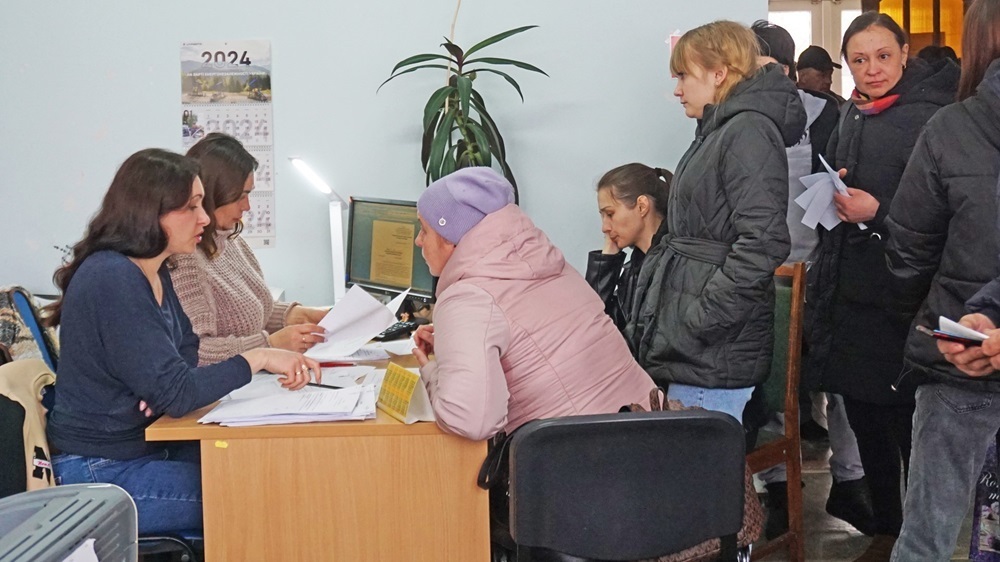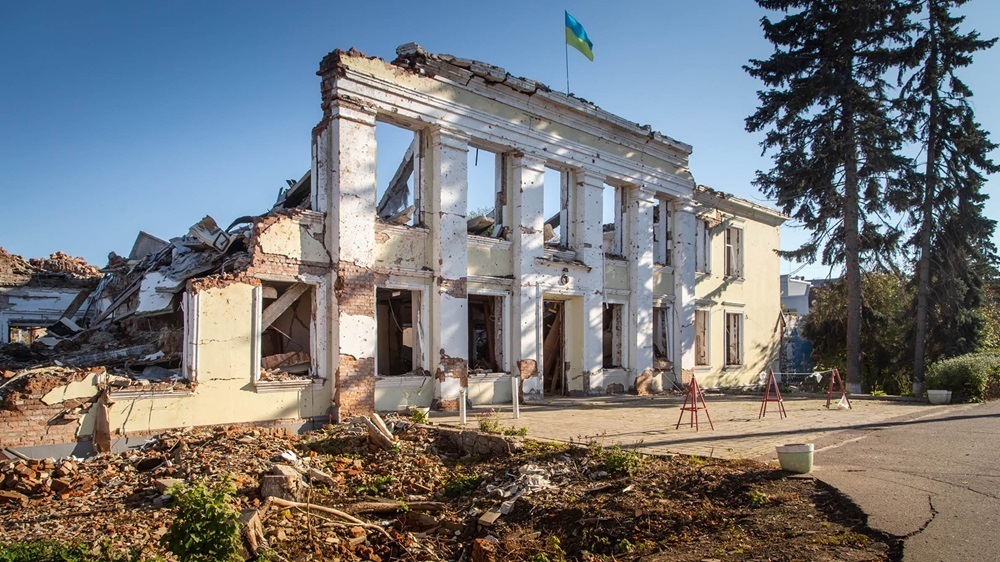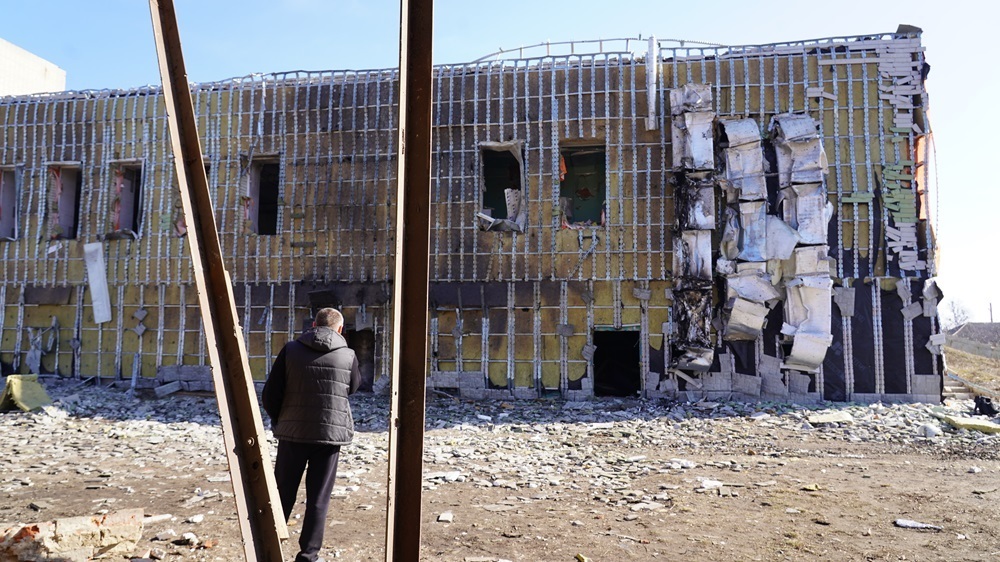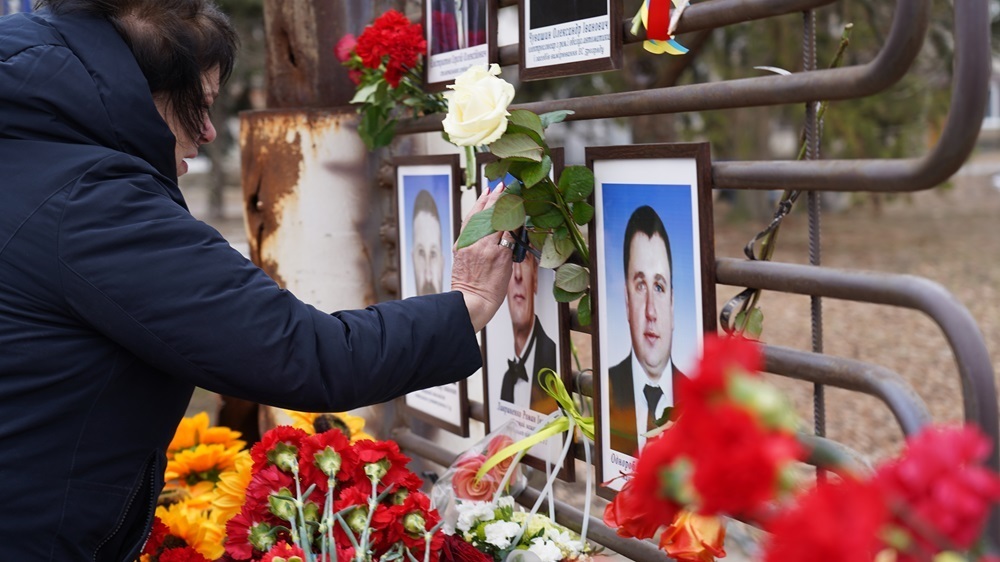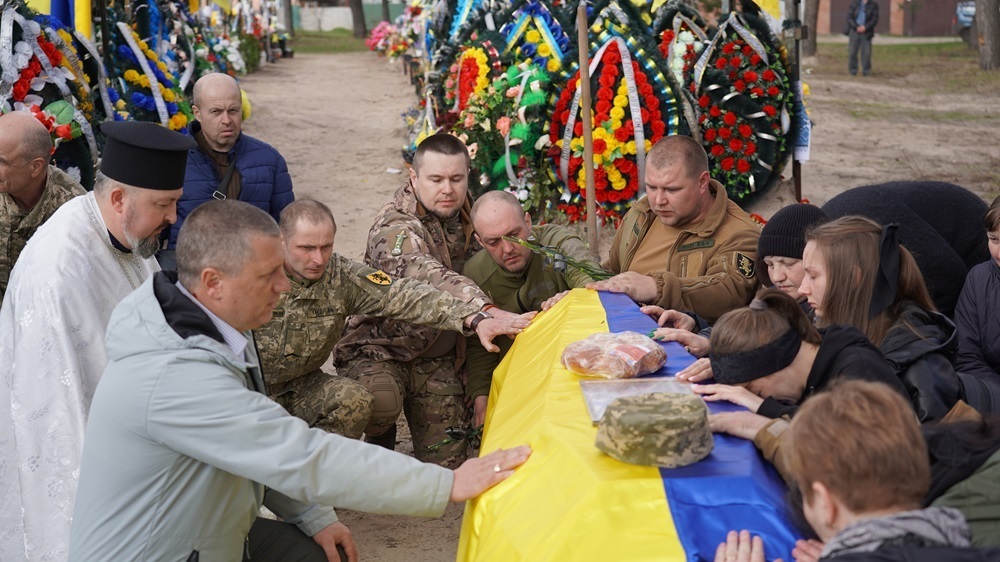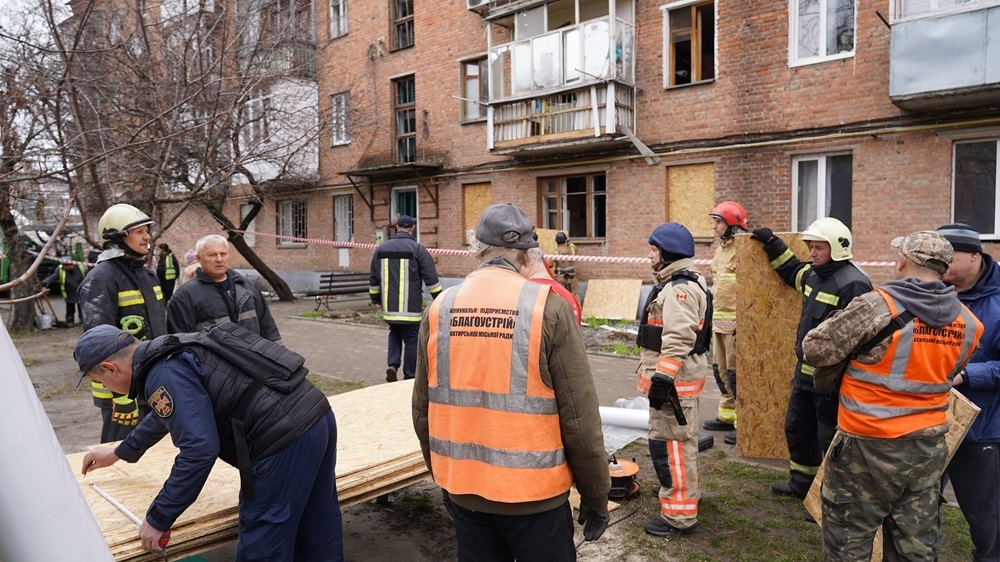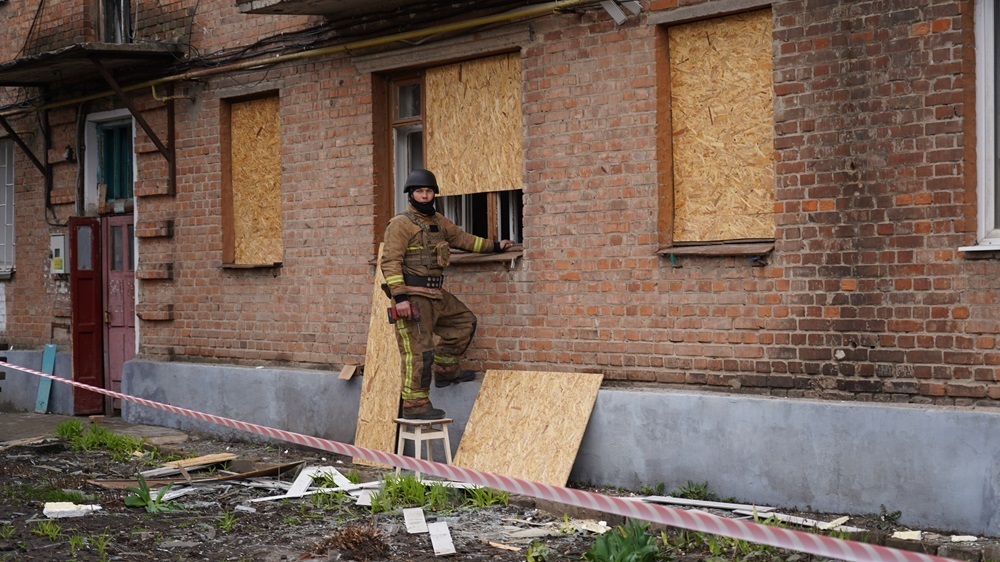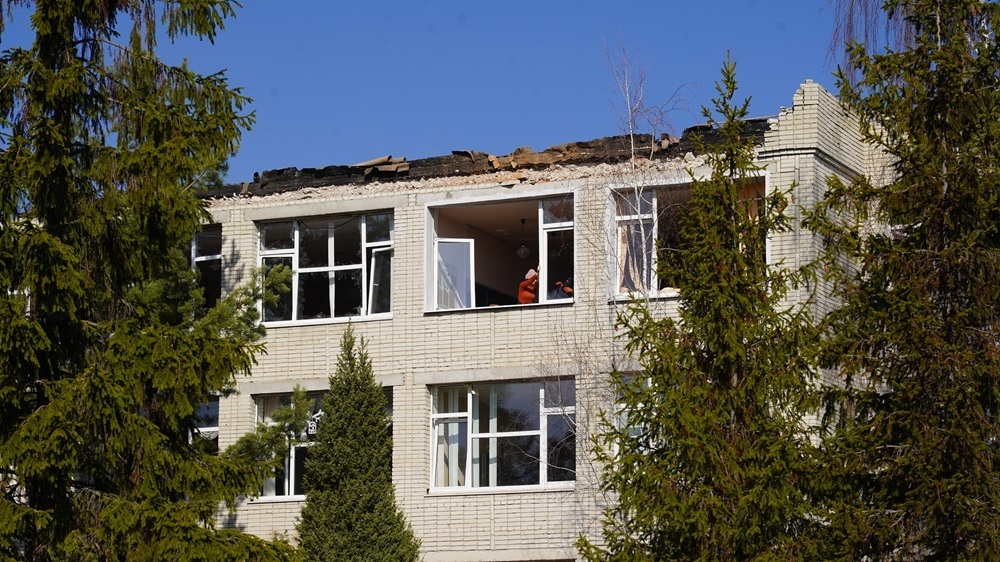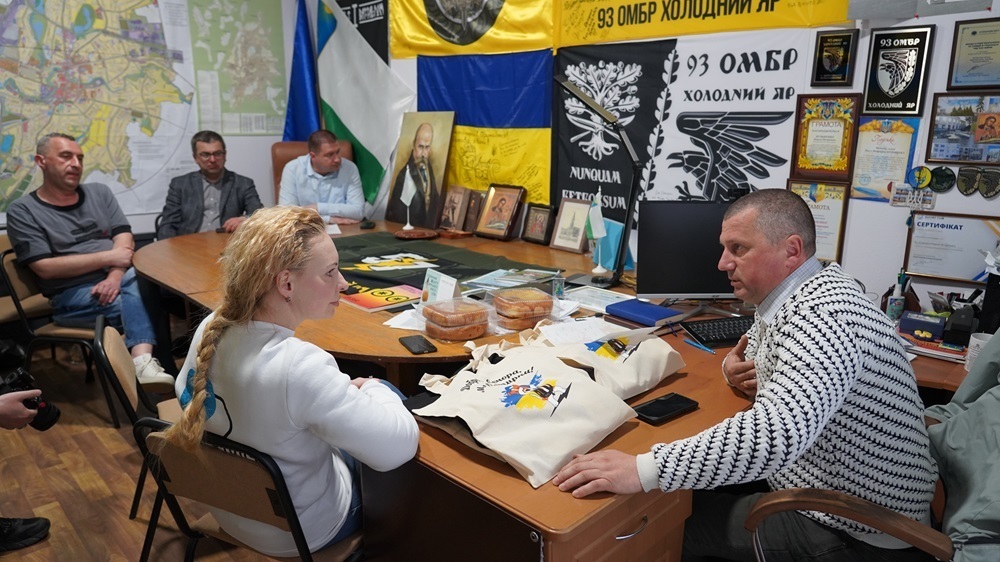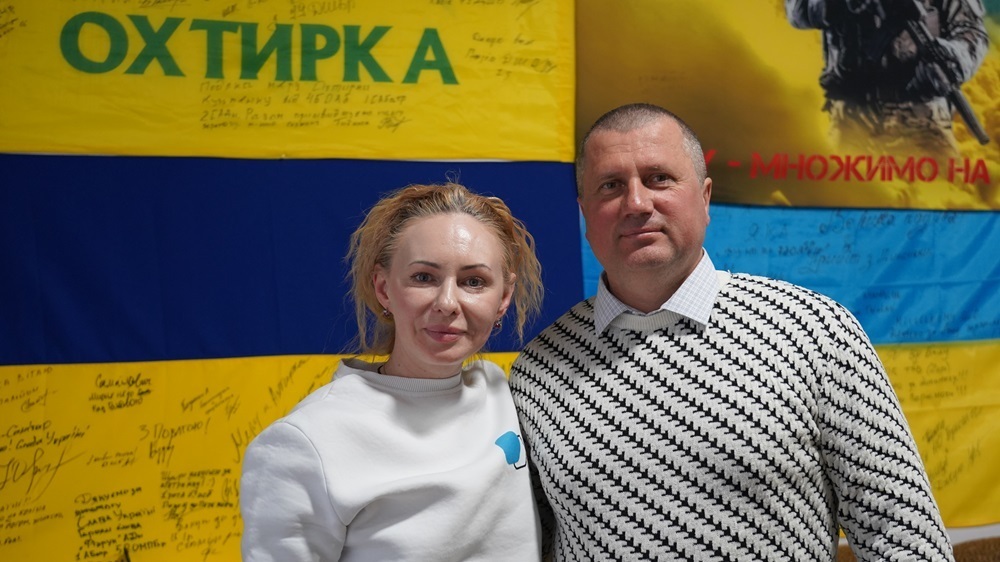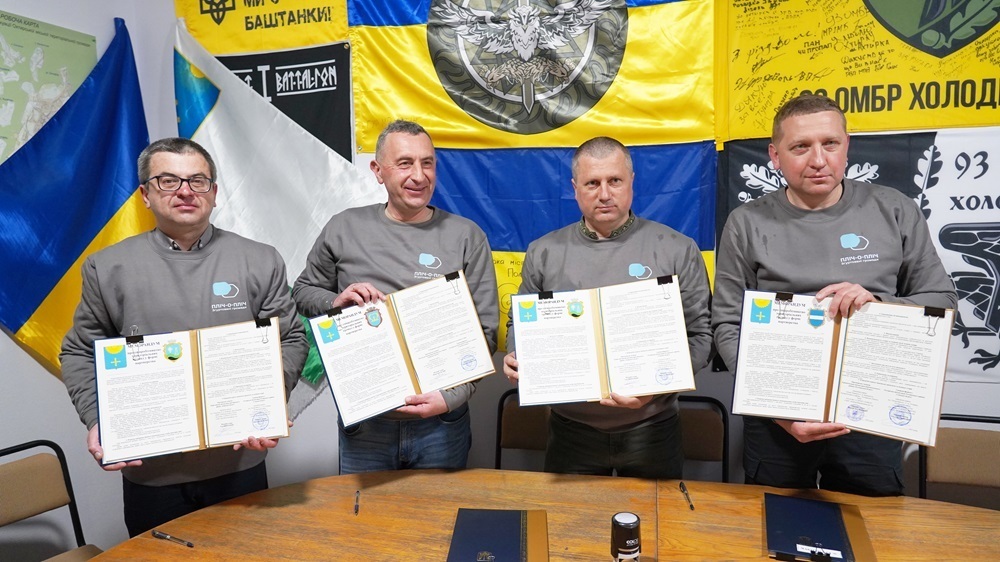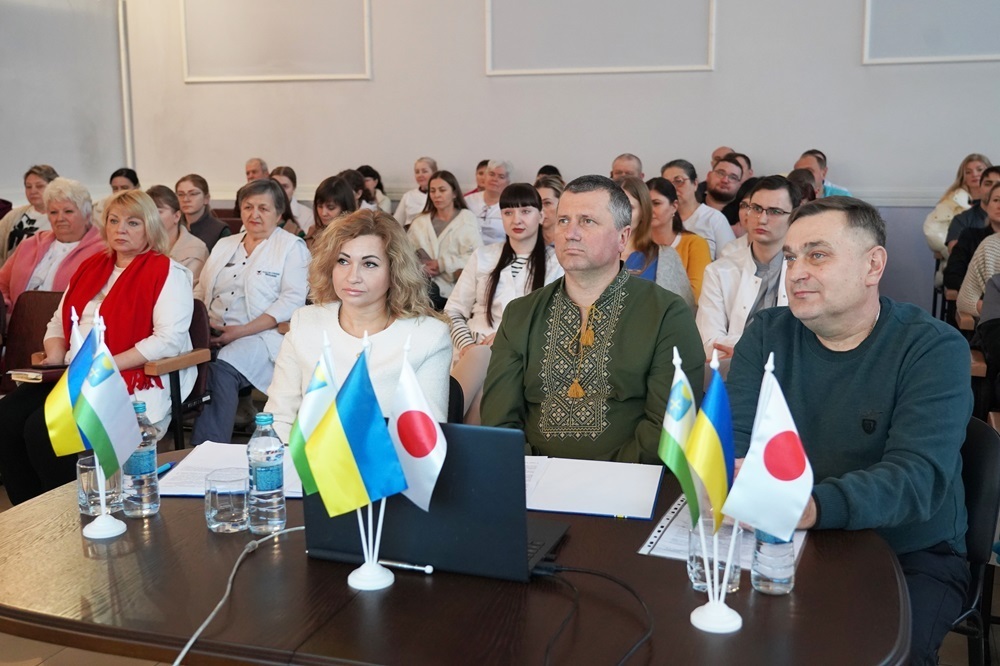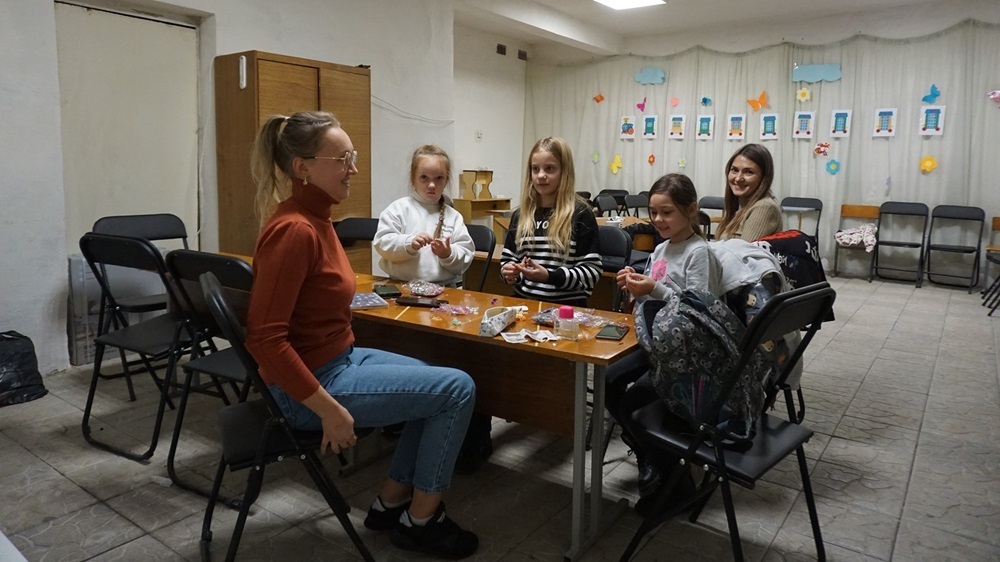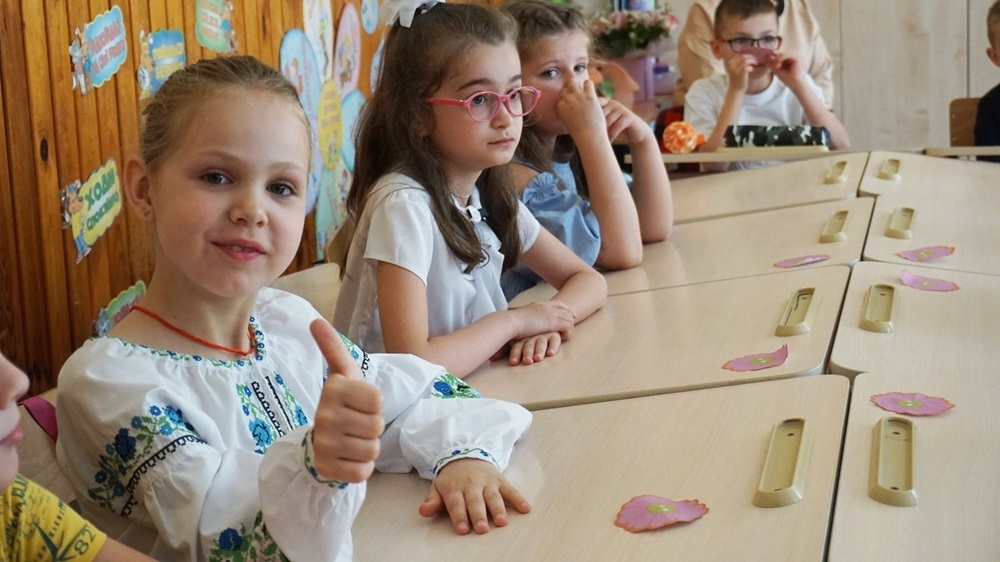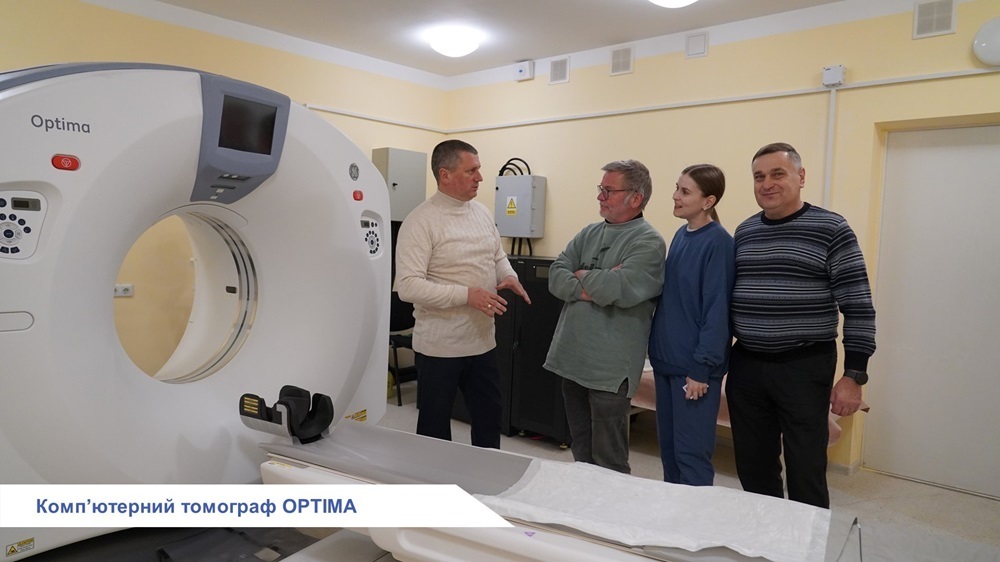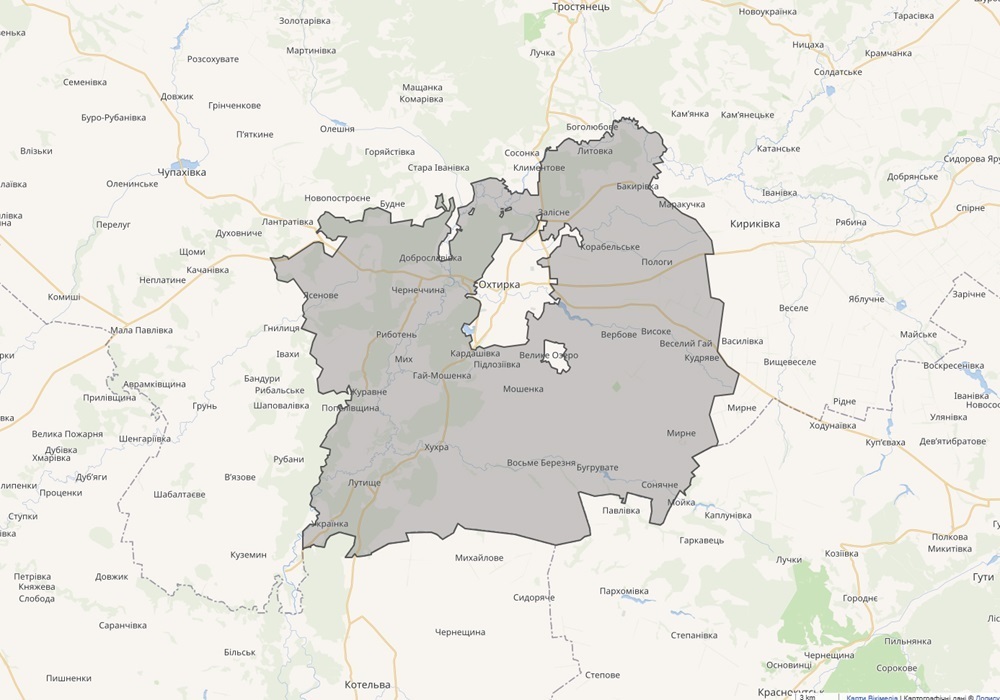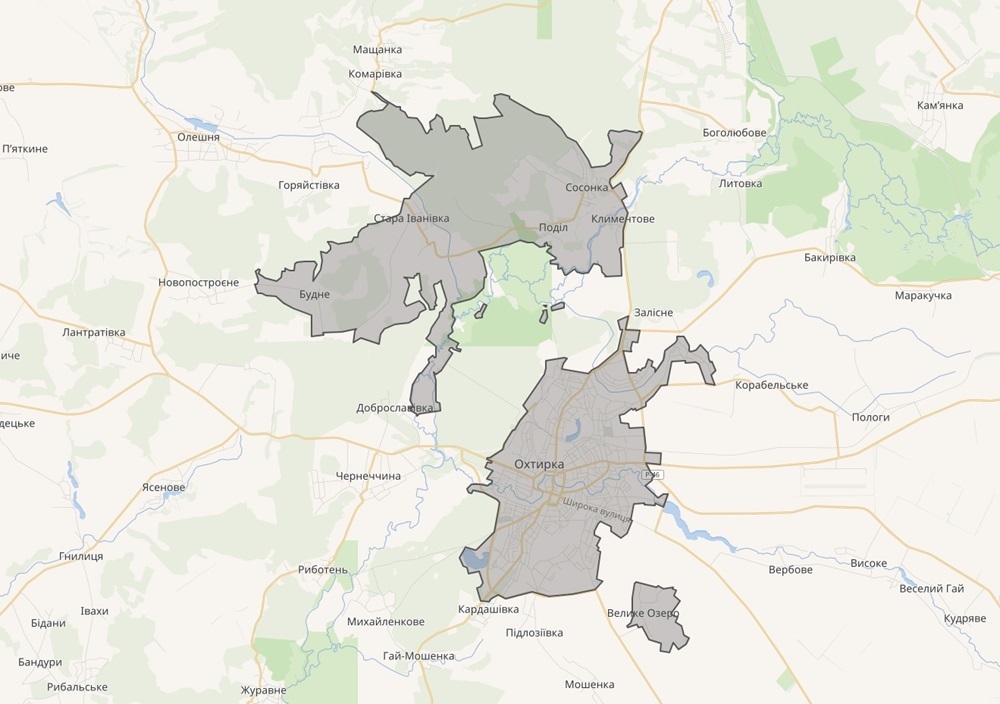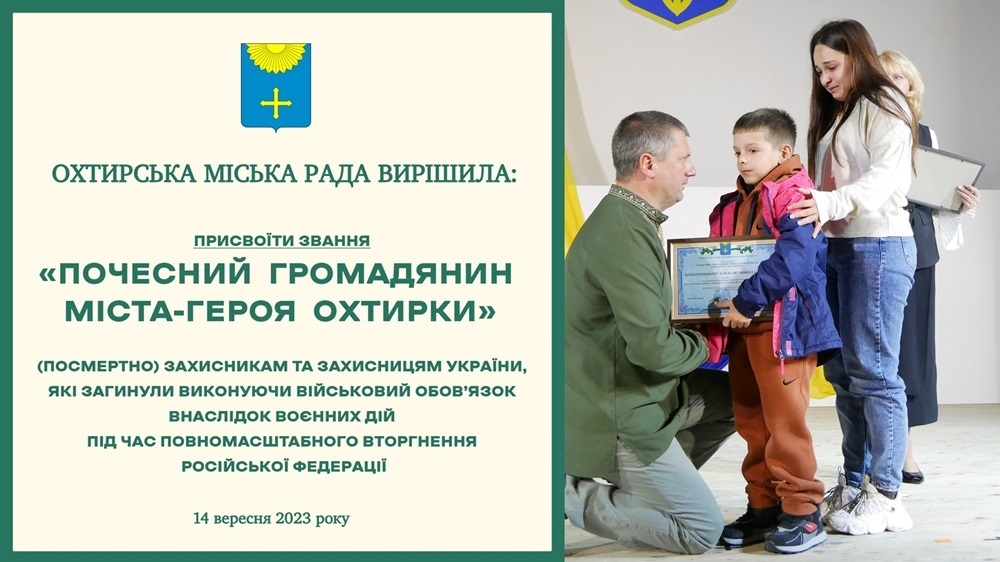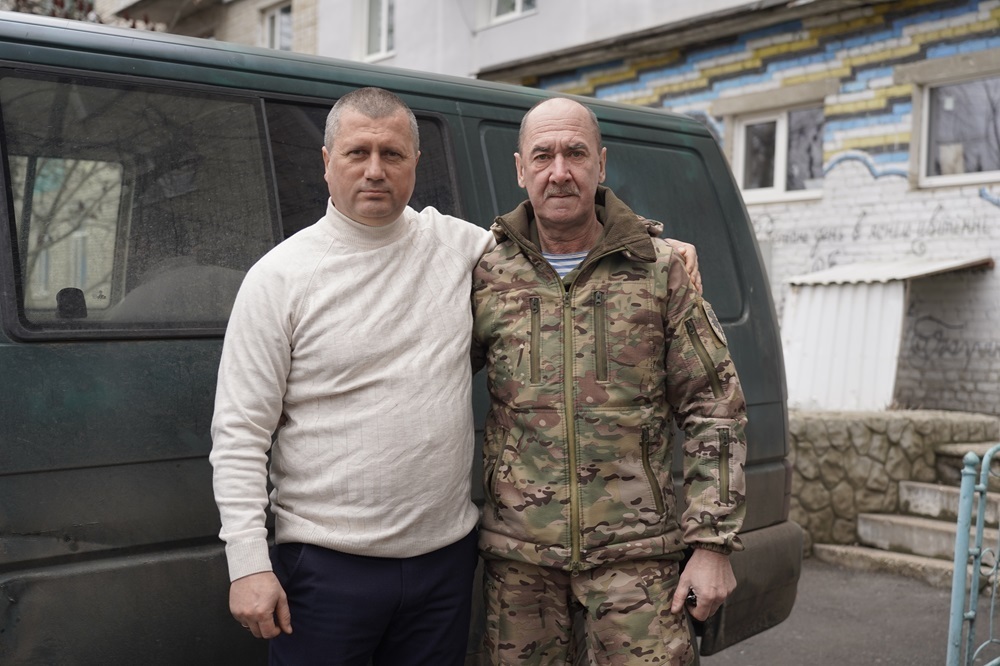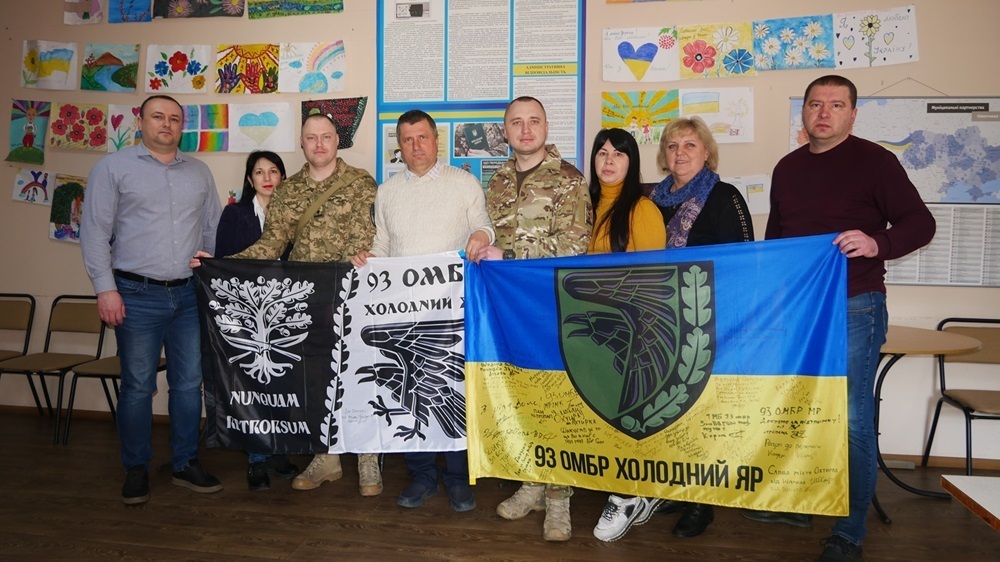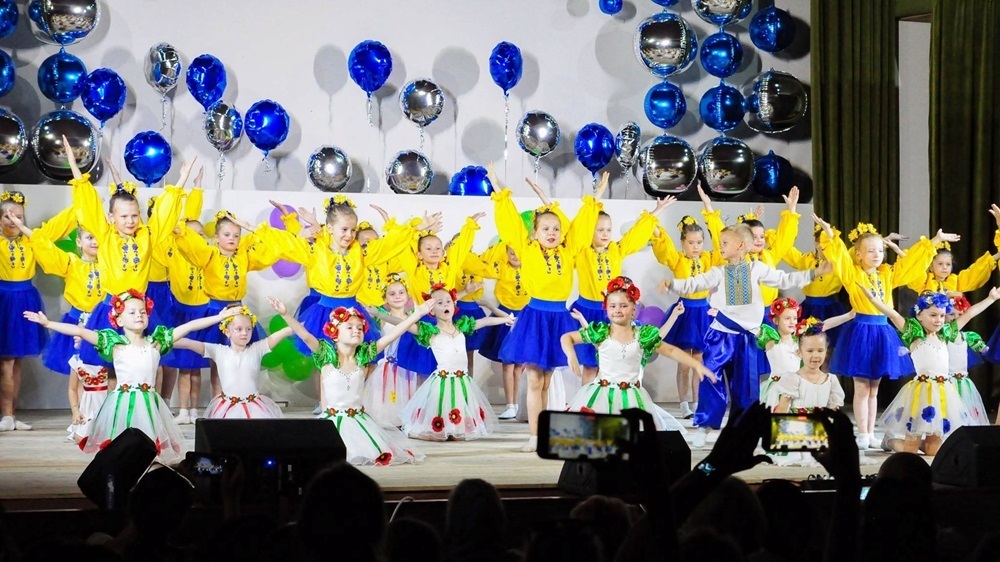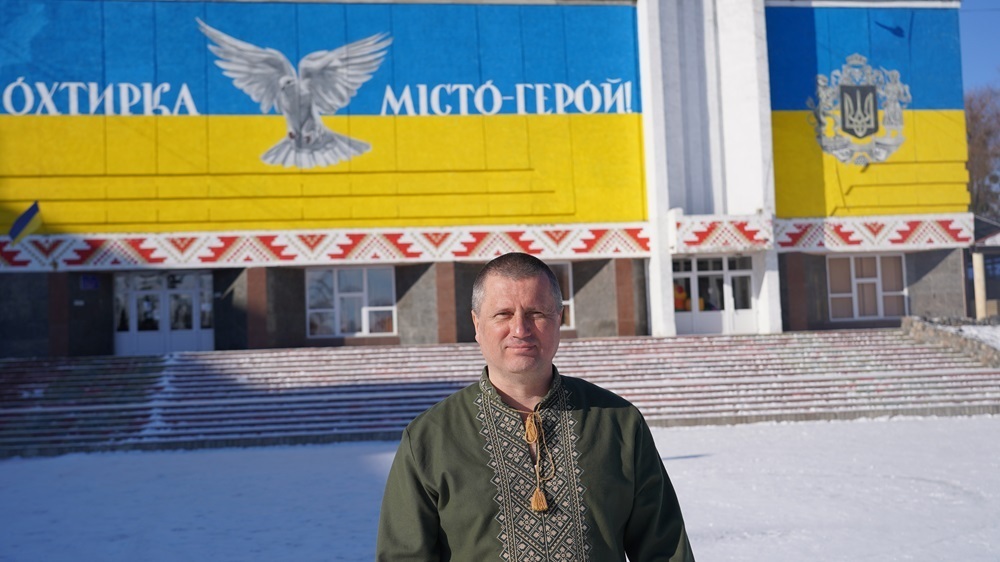‘Border communities need to feel that they are needed by the state. Otherwise, they will become deserts...’
Pavlo Kuzmenko, Head of the Okhtyrka community, a traumatologist with twenty years’ experience, talks about the steal-syndrome, the burnout effect and the timely treatment of dislocation – both in state policy and in the work of local self-government
By Dmytro Syniak
‘We should talk to you for fifteen hours so that I can explain my thoughts in detail,’ jokes Pavlo Kuzmenko, Head of the Okhtyrka town community in the Sumy region, when asked a simple question about the state of affairs. Pavlo is one of those people who do not like to boast, but instead concentrate on working on the shortcomings. Many people dislike this approach, which is why Mayor Kuzmenko has made many enemies. At the same time, even those who dislike his directness and categorical approach respect the Mayor for his hard work and ability to solve the most difficult problems. These qualities proved particularly valuable after the breakout of the full-scale russian invasion. At that time, Okhtyrka withstood the fierce attacks of the russian army. This was largely due to the uncompromising stance of the town council, which in turn rallied the local population. Okhtyrka is still under attack from the occupying forces. However, the mayor is convinced that the results of this struggle could have been much better if the state had strengthened the frontline communities. He also believes that if this does not happen in the near future, the people who sacrifice themselves on a daily basis in the workplace will leave for safer areas and the border will become deserted. As a traumatologist who worked at Okhtyrka hospital for 20 years, Pavlo often uses medical terms to explain his thoughts.
Steal-syndrome
What plans do you realise on a daily basis? What work takes you the most time?
- In peacetime, the mayor has a list of tasks for the day, week, month, and year, timings and all that. War destroys all plans. The most damaging thing for our work is the air-raid alarm that goes off every day and night. On average, every four or five days, a russian drone hits a facility in our infrastructure. Under such conditions, people become fatigued, lose hope and flee. If there are no people, the budget is not fulfilled. I am very sorry to say that we are starting to fall behind compared to the communities in the rear. Some of them are now not only recovering, but also making great strides forward. We were also ahead before the full-scale invasion, but now I no longer know whether we will ever catch up with others. By any measure: the cost of housing, the number of businesses, the average wage...
Can this be prevented?
- I want to start by talking about the reasons for this situation. Yes, the enemy is to blame for the destruction and the deaths of our fellow citizens, but whose fault is it that reconstruction is not going as well as it could? That our defences are not being built in the best possible way? As a doctor, I often compare our country to a human body, the russian aggressor to an infection that wants to destroy this body, and our government to a doctor. A doctor should not fight for the health of individual organs, but for the smooth functioning of the main processes. The government, on the other hand, tries to preserve certain organs while ignoring the overall danger. In other words, in relative terms, it is about keeping the skin clean and not paying attention to the fact that the kidneys and heart are working overtime. In medicine, this is known as the steal-syndrome.
Let us look at the details.
- No problem! Despite the war, communities and even regions continue to pull a so-called financial and resource blanket over themselves, ignoring the general danger to the existence of the entire state. And the government does not interfere. So, the rear communities continue to receive ambulances, fire trucks and other aid from the state and partners, they replenish their municipal vehicles, repair hospitals and schools, and give the frontline communities at best the remnants of what they have. Does that seem right? A sick organism must be strengthened where it is sick! If you go to a forum abroad and listen to the speeches of community leaders from the centre and west of Ukraine, you are, to put it mildly, very surprised. Not even because there are other problems there. We are burying soldiers here – not one or two at a time – we are trying to protect our children at least somehow, we are constantly hiding from russian planes and drones, we are restoring what they have turned into ruins... In the rear, streetlights are being renovated, cobblestones are being laid and expensive spectacles are being organised, just as before a full-scale war. This creates a huge dissonance. But this is not the most shocking thing...
What is it then?
- Hypocrisy. For example, in various forums, the leaders of rear communities often say very seriously what a big problem IDPs are for their towns and villages. These people, they say, take up a lot of resources, they need to be given this and that. Community leaders say, ‘We need a better hospital because we have a lot of IDPs now! For some reason, none of them mentions that IDPs themselves are a powerful resource, especially in terms of human resources. Who is an IDP? Roughly speaking, it is an electrician who has worked all his life here, in Okhtyrka, and now works somewhere in the west or centre of Ukraine, pays taxes there, buys food and everything else there. His children go to school there, and thanks to that, the community that hosts his family gets more subsidies for education. It also gets some money from the state to work with internally displaced people. So perhaps we should not use resources that are already scarce to help the rear. Helping those communities that are on the russian border or on the front line – it is almost the same thing now. Those communities that are holding back the advance of the occupiers every day. Those communities on whose infrastructure the military directly depend.
Are there any IDPs in your community?
- Of course there are, and there are many. But again, because of the state’s inattention and even indifference to spending so much needed money, these people are registered in neighbouring communities, even though they live in Okhtyrka. The fact is that the neighbouring communities are no longer part of the zone of potential hostilities, so IDPs can easily receive financial assistance there. And they do. These people use our infrastructure, but we do not benefit from it. On the contrary. It is because of them that the number of cars in our town has tripled in three years, because everyone wants to jump in a car and flee far away, not realising that they will still be stuck in traffic on the narrow Okhtyrka-Poltava motorway. And so, these cars destroy our roads and create traffic jams…
But technically speaking, they are not yours, are they?
- Yes. It is ridiculous when these people get involved in our political life, start talking about what they dislike, saying who they support and who they do not, and influence the mood of the community. Wait, are you our residents, or are you residents of other communities? Why has the state not regulated this issue yet? It should be the first to take an interest! Let us do the maths: each IDP receives UAH 2,000 per month. Five thousand such IDPs mean a monthly loss of UAH 10 million for the state. In a year, this amounts to UAH 120 million. Why no one controls this process in the fourth year of a full-scale war?
First wave of IDPs from Velyka Pysarivka community at Okhtyrka Social Security Department, 10 March 2024
Destroyed by a russian aircraft on the night of 8 March 2022, the Okhtyrka Town Council can now symbolise the resilience of local self-government across Ukraine
What the three russian drones left of the Okhtyrka Lyceum after attacking it on 8 March 2025
Improvised memorial to the five power engineers killed in a russian air strike on the Okhtyrka thermal power plant on 3 March 2022
‘Psychologists in the capital city have never seen such a burnout as is seen here...’
You have said that you are unhappy with the construction or major repairs in the rear. But if the rear community has managed to attract donor funds for such construction or major repairs, there is nothing wrong with that. Because the International Monetary Fund, which, for example, insulates hospitals all over the world, does not buy drones.
- But I am talking about another issue! Let us take the following aspect. Why does the state maintain the leadership of more than four hundred occupied communities? It turns out that the community has been de facto under the control of the invaders for three years, but de jure it has a budget, its leaders have been receiving salaries for three years. Is this normal?
First and foremost, this is a purely political moment: in this way, we are showing the whole world that we are not going to give up the occupied territories.
- Shall I tell you what this ‘political moment’ looks like in practice? The administration of a frontline community moves to our town, rents an office, and places all its departments and subdivisions there. Therefore, several departments of culture, education and others end up in Okhtyrka. All this despite the fact that Okhtyrka Town Council lacks specialists! So should we just add these departments to ours? This is such a simple and obvious solution, thanks to which we will get such important staff, and the state will save much-needed funds for the front line. Do you know what this ‘political moment’ in education looks like?
What?
- In the year that the leadership of this frontline community has been with us, not a single teacher has come to work with us. When we really need teachers! We even tried to lure them and invited them to talk to us. But they just laughed, ‘We get one and a half salaries for our online work and a bonus for the war zone. So, our current salary is twice as much as in your schools!’ This is despite the fact that the children these teachers work with online often live in Okhtyrka! We would like to hire not only teachers, but also doctors, local government officials, for example. But how is that possible under such rules? Might the state have organised something wrong? Let us also talk about the discrepancy in regulatory framework, which we have repeatedly raised with both the Cabinet of Ministers and the Office of the President – unfortunately to no avail.
What is the discrepancy in regulatory framework? What exactly do you mean?
- How, tell me, can you set the same requirement for filling classes in Okhtyrka, which is only 40 km from the russian border, and, say, in Lviv? This requirement is not only unequal, it is also not in our favour: if we have to enrol an average of 26 students in a class, then our twin cities in the rear (I do not want to specify which ones) have 23 students. How is that possible? When the funding of the entire education sector depends on the average class size, which we did not have even before the full-scale war. We have talked about education, but do you want to talk about medicine?
Tell me about medicine. Is there a steal-syndrome here?
- Yes, there is! Tell me, why do the medical facilities that were moved from the occupied territories continue to operate throughout the country? Is there a lack of medical facilities? No, we lack staff! Here it is, the steal-syndrome in action! The liver is working with a crazy overload, and at the same time, the doctor is filling the patient’s lips with Botox! Of course, the lips will be very beautiful, but the patient may die! Somewhere in Kyiv or Vinnytsia, doctors from Mariupol or Berdiansk are feeling great, while at the same time doctors at the hospital in Okhtyrka, whose fate largely depends on the defence of a large section of the border, are working to the limit of their physical capabilities.
I think you are exaggerating a bit.
- Not at all! Come and see first-hand what these people look like, and compare them with doctors in Kyiv, Lviv, or Mukachevo. Recently, psychologists from Kyiv worked in our local hospital for a week. They told me afterwards that they had never seen such burnout anywhere else. Our doctors and nurses are literally working to the limit. When an air raid is announced, they cannot leave the ward with the patients lying down. They stay and just pray that no drone or missile will hit the hospital. It has lasted for three years. And air raids are almost every day, so you can imagine the morale of these people. They live every day as if it were their last day... In 2022, 150 of the 800 employees of our local hospital remained, and they lived at work for a month. They are real heroes! But the state did not single them out in any way.
How should the state have singled them out?
- Let me tell you what happened. Those who went to western Ukraine or even abroad for a few months received the same salary as those who stayed. Later they came back and said, ‘This is my job! Please fire him!’ And the person who was in charge of the branch during the most difficult time, who actually lived there, had to move aside and let someone who had spent six months in thermal baths somewhere in the Zakarpattia region, or even managed to earn several thousand euros abroad, take his place. In view of what I have said, do you think that if the Muscovites approaches Okhtyrka again, many doctors will stay, as they did then? It was the same with teachers, by the way. And not only teachers. Many of those who returned later began to ask, ‘Why is Okhtyrka so badly destroyed, while Konotop, for example, is intact? Has the mayor not done something wrong? He must have organised this destruction, because he covered up the traces of his theft!’ And I... you know, I have already buried about 240 of our defenders…
Funeral of a fallen soldier in Okhtyrka. April 2025
Utility workers are cleaning up the aftermath of a russian drone attack on an Okhtyrka residential complex in March 2025
Border fortress communities should stand ‘Shoulder-to-Shoulder’ with each other
What do you propose?
- The same as I proposed to the President in a personal meeting in the spring of 2022. I firmly believe that all frontline communities should live under separate laws that will protect and strengthen them. Recently, the Shoulder-to-Shoulder project has introduced the concept of a fortress community. In fact, I told the President about the creation of such fortresses three years ago. But they should not be beggars that exist at the expense of international or national partners. The state should pour funds into them in order to turn them into a powerful force.
What exactly should the government investment be in such fortress communities?
- For me, all the employees of all the departments of our town council are defenders. Of course, I do not want to diminish the role of the Ukrainian army, which carries a much greater burden than we do. But I also do not want to put our employees on the same level as, for example, the local government employees in Zakarpattia. We are the near rear, we are the wall the army relies on. If doctors, teachers, and public utility workers in communities like ours are paid two or three times more than in the rest of Ukraine, people will come here. And these people will feel that the state needs them. If this does not happen, if the state continues to equate Okhtyrka with Chortkiv, Sheptytskyi, or Kolomyia, we are doomed. As soon as the patience of those who sacrifice themselves every day in their workplaces is exhausted, there will be a desert here.
So, in your opinion, the border fortress communities should have a separate state scheme for all their needs?
- Exactly. It would be good if these communities could amalgamate to form a strong belt. In the Sumy region, amalgamation of three or four such communities along the border would be enough. Perhaps they should not be governed by local councils but by military administrations. They should immediately build the roads and fortifications the army needs, and repair key infrastructure facilities. This is a matter of security for the whole state! In the rear, you can do whatever you want, form whatever communities you want, decide for years whether a village needs a small school or not. But here, on the border, everything has to be monolithic, clear, and work like clockwork. And it should not be restored the way it is now.
What is wrong with the restoration of the Okhtyrka community?
- Let me give you just one example, without going into too much detail. Both the State Agency for the Restoration and Development of Infrastructure of Ukraine and the Ministry for Development of Communities and Territories of Ukraine have made the first condition for the restoration of any facility that all restoration projects be included in the state digital ecosystem DREAM. This is a great initiative, but there are only two project organisations in the Sumy region, so it is much more difficult for me to make project estimates than for the Kyiv community, for example, where there are hundreds of such organisations. Nevertheless, we are on an equal footing with this community. Why is that?
Do you have any specific proposals: draft resolutions and bills, calculations that the government and parliament could use to change things?
- They already have all that! They have also set up a pilot project to identify six communities in Ukraine that the state should comprehensively restore. I have no idea why Okhtyrka was not one of those six. In any case, we rebuilt the thermal power station destroyed by russian thermobaric aircraft bombs at the expense of our own budget. I also received an official warning from the regional military administration that I would face criminal proceedings if the heating season in the town did not start in the winter of 2022/23. Fortunately, USAID paid for the rapid development of high-quality terms of reference. But we also needed design and estimate documentation, which will take at least six months to complete. When the government finally allocated UAH 86 million to us, it turned out that we were physically unable to spend this money. So, we repaired the thermal power station at our own expense. Incidentally, at about the same time as Okhtyrka, thermal power stations were destroyed in Chernihiv, Kharkiv and Kremenchuk. And in none of these cities were they rebuilt at state expense.
You mentioned the Shoulder-to-Shoulder: Cohesive Communities project. Is Okhtyrka involved in it?
- Yes, of course, we cooperate with several communities. We are not forgotten, this is the most important thing for us, and we are grateful to the Shoulder-to-Shoulder project for this. Borderline fortress communities really should stand shoulder to shoulder with each other. Firstly, we have the financial support of the Kremenchuk community in the Poltava region. Its head, Vitalii Maletskyi, has already helped us rebuild a school destroyed by russian bombs this year. Another community supporting us is the Mostyska community in the Lviv region. We have already received several utility vehicles and pieces of equipment for the hospital. This community has also hosted our children for recreation and rehabilitation and plans to do so again in the future. Another very important partner community for us is the Boryslav community in the Lviv region. Like us, they have a long history of oil production. Oil and gas companies are the main contributors to our budget.
Pavlo Kuzmenko and Mariana Tomyn, Project Manager of the Shoulder-to-Shoulder: Cohesive Communities project, are finalising the details of the future MoU between the Okhtyrka community and the communities from the Poltava and Lviv regions
Pavlo Kuzmenko, Mayor of Okhtyrka, and Mariana Tomyn, Project Manager of the Shoulder-to-Shoulder: Cohesive Communities project
After signing the Memorandum of Cooperation in the framework of the Shoulder-to-Shoulder: Cohesive Communities national project. From left to right: Yurii Khymyn, Secretary of the Boryslav Town Council, Oleh Makar, Secretary of the Mostyska Town Council, Pavlo Kuzmenko, Mayor of Okhtyrka, Vitalii Maletskyi, Mayor of Kremenchuk
During the online signing of a grant agreement with the Ambassador Extraordinary and Plenipotentiary of Japan to Ukraine, Mr Masashi Nakagome, within the framework of the Kusanone programme. Under this agreement, the Japanese government has pledged to purchase laparoscopy equipment for Okhtyrka Town Hospital
Despite difficult wartime conditions, education continues at Okhtyrka Lyceum – in a shelter
A CT scanner purchased last year under the Ministry of Health’s programme for the Okhtyrka Town Hospital
The richest mayor
Is the Okhtyrka community looking for extra-budgetary funding?
- Yes, of course. In three years, we have received over UAH 1 billion. This includes the cost of construction materials, various equipment and vehicles: generators, tractors, cars, medical equipment and furniture... In our hospital alone, we have invested over UAH 100 million in the three years of the full-scale invasion, both from the state, donors, and our own resources… But to be honest with you, now I am ashamed to act like a beggar, because my community has withstood the attacks of the russian army for three years, and it has not fallen, it is standing with dignity, even though it is literally bleeding.
How do donors feel? Are they ready to help frontline fortress communities?
- The views of the donors, who unfortunately also suffer from the steal-syndrome, are not primarily directed at the frontline communities. I understand their logic: let us invest in Vinnytsia, not in Okhtyrka, which the russian army can still reach and turn into a complete ruin, like Bakhmut, Avdiivka, or Toretsk. This is all true, but if you reinforce Okhtyrka, the russian army may not be able to get through it. You must not think about what the Muscovites can achieve, but how you can defend yourself against them! The frontline communities should become powerful fortresses, not useless empty zones! Salaries there should be higher, not only for mayors, but for all public servants. My daughter, a fifth-year student at a pedagogical university and a teacher, has been saying to me a lot lately, ‘What kind of salary is UAH 6,000 a month, dad? Maybe I should go to a shop and work as a saleswoman?’ And here I am, the richest mayor in Ukraine, and I have nothing to say to her. Is that right?
The richest mayor? Are you referring to last year’s message from MP Vitalii Bezgin, in which he published a list of the seven mayors with the highest salaries in local self-government? Your name was among the seven then. How much do you earn now?
- About UAH 140,000 per month. It was so much mainly because of the 1.5 coefficient for the area of possible hostilities. That is to say, this salary increase happened automatically, one could say, regardless of me. In 2022, my salary was about UAH 40,000. I am proud of the fact that every month I give about UAH 100,000 of this ‘highest salary’ to the military. Among all the things I bought for them there are, for example, 6 cars. In 2022, I officially donated to the Armed Forces of Ukraine about UAH 600,000 worth of various items, in 2023 – about UAH 800,000, and last year – UAH 1 million. And in the three years, I have been receiving this ‘exorbitant salary’, I have not built a palace for myself. I still live in a small house and drive an old car.
In 2023, Volodymyr Zelenskyy awarded Okhtyrka the title of ‘Hero Town of Ukraine’. Did this affect your relationship with government officials? Did they start paying attention to your words after that?
- Alas, no. Although there was some very fierce fighting near Okhtyrka. Thanks to this, Okhtyrka became the only frontline town to have this title. We, the local government officials, of course helped the military as much as we could and also actively spread information about our struggle. As a result, the whole world began to laugh at the russians, ‘Those who wanted to capture Kyiv in three days cannot capture Okhtyrka for a month!’ That was the result of our information campaign! When some other mayors were calling for a ‘deal’ with the russians, I was shouting to the whole world about the daily bombings and the deaths of civilians.
You have mentioned that you personally help the Armed Forces of Ukraine. Does the Okhtyrka community help them?
- Over the past three years, we have allocated about UAH 100 million in inter-budgetary transfers and donated many vehicles from our utility companies to the military. We also have support programmes for defenders of Ukraine – both in the Social Security Department and the Health Department. This means that men and women serving in the army, for example, receive free medical treatment and various types of financial assistance. The same goes for their family members… Unfortunately, after the military PIT was removed from our budget in the middle of 2023, we were no longer able to allocate as much money to the army as before, but all the local programmes for the military remained. However, we had to abandon the idea of rebuilding one of the five destroyed apartment blocks, which we had planned to rebuild at the expense of the local budget. This building has not yet been completed, and we were about UAH 30 million short.
Chernechchyna community on the map of Ukraine
Okhtyrka community on the map of Ukraine
You mentioned that the budget of the Okhtyrka community is mainly filled by oil and gas companies. What about other businesses? For example, do farmers sow their fields?
- You represent the Decentralisation Portal and you know very well that everyone is praising the decentralisation reform. I do not deny that this reform is one of the best in the country. Unfortunately, it has worsened the economic situation in Okhtyrka. The main reason for this is the creation of a ‘bagel’ community around Okhtyrka, which has blocked our development opportunities. We are talking about the rural Chernechchyna community, with a population of about 10,000. Now we border it right on our ring road. This community is extremely wealthy because of the same oil and gas companies and fertile land. We have no such land. In order to formally comply with the law on the indivisibility of territories, we were given the land of our current Staroivanivskyi starosta district, to which we are connected by a road. But look at the map and tell me, is the territory of our community really indivisible?
Still, you have a lot of land: almost 83 square kilometres…
- True, but most of the land belongs to the Hetman National Nature Park, where no commercial activity is allowed. The rest is marshland and quarries. There is no more than 100 hectares of arable land, which has long been in private hands. By the way, the Chernechchyna village council operates in Okhtyrka. Their administrative service centre and their outpatient clinic are in our town, their children go to our schools, and their residents are treated here. Is this normal? Was the decentralisation reform designed to ensure that communities have such a flawed configuration? This needs to be fixed as soon as possible! As a traumatologist with twenty years’ experience, I can tell you that if a child’s dislocation is not corrected, the consequences in ten years’ time can be terrible.
Pavlo Kuzmenko presents the victims’ relatives with certificates awarding them the title of ‘Honorary Citizen of the Town – Hero of Okhtyrka’ (posthumously)
Pavlo Kuzmenko and Mykola Burkhan, a fighter from the legendary 93rd Separate Mechanised Brigade ‘Kholodnyi Yar’, in front of a car Pavlo bought with his own money and donated to the brigade
Colonel Oleksandr Slipko (third from left), Deputy Commander of the 93rd Brigade, Pavlo Kuzmenko (fourth from left), Mayor of Okhtyrka, and Vladyslav Shostak (fifth from left), Commander of the 154th Separate Battalion of Territorial Defence of Okhtyrka, during the transfer of material aid from the Okhtyrka community to the troops. All others are employees of the Okhtyrka Town Council
Despite the constant threat, children’s clubs and festive events continue to take place in Okhtyrka
Pavlo Kuzmenko in front of the town’s cultural and leisure centre, featured on a special stamp, issued by Ukrposhta
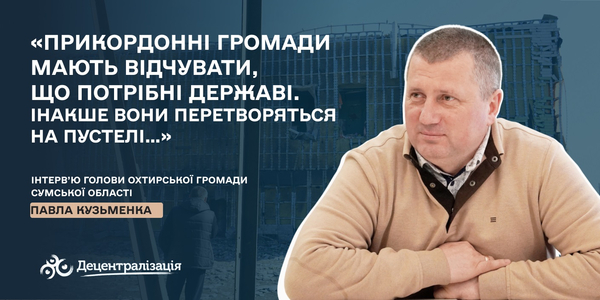
Tags:
war stories report side by side
Область:
Сумська областьГромади:
Охтирська територіальна громадаSource:
Decentralization portal
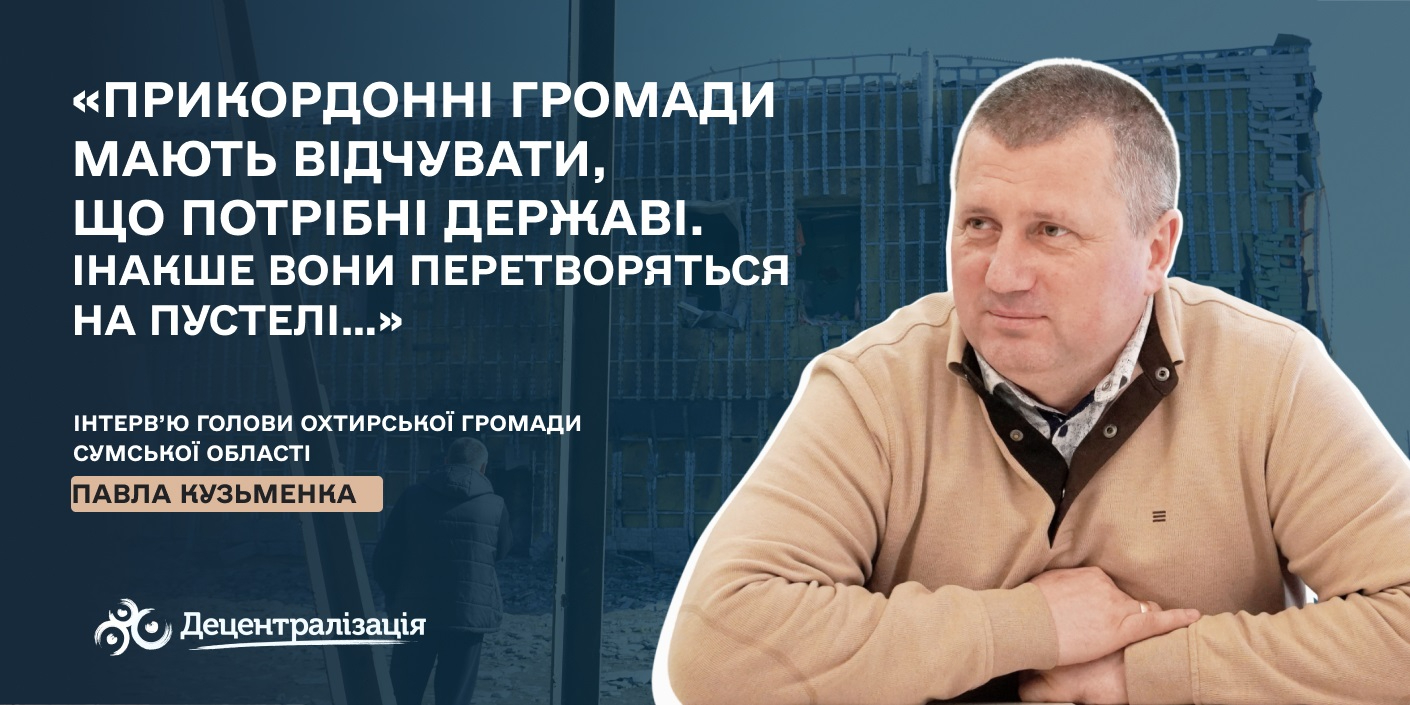
20 February 2026
Місцева статистика: Як перетворити розрізнені...
У Києві відбулася стратегічна зустріч "Статистика громад", організована Державною службою статистики України за...
20 February 2026
I_CAN launched a nationwide rollout of its Public Investment Management Training Programme for local governments and...
20 February 2026
Language of Development Part 2: Funds and Instruments of EU Cohesion Policy
Language of Development Part 2: Funds and...
With the “language of development”, we describe not only the goals and principles of EU regional policy, but also...
19 February 2026
Анонс: вебінар «Обговорення змін до Порядку...
Які практичні кроки мають здійснити керівники та педагоги, щоб ефективно впровадити ключові зміни до Порядку...
